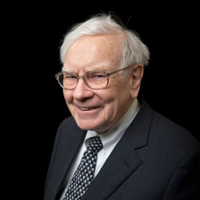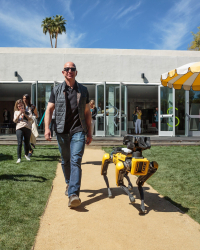
Soon after launching a-clue.com, my e-commerce newsletter, in 1997, I began warning of dark days ahead. True, the Internet was cool. Yes, e-commerce was great. But when companies barely have sales, let alone profit, and there are many companies trying to get through the same door, all acting like they’ve gotten through it, and people are still throwing money at all of them, I say nay.
Here’s a life confession. I’m early to any party. I became an avid bike rider in the 1970s. I was arguing with my teachers about what the Internet might mean to the journalism business in 1977. My dear wife was commuting to an office by bike, in sneakers, in 1980, and by train, in Atlanta, starting in 1983. I began telecommuting the same year and became a professional Internet reporter in 1985. I began covering Internet commerce full-time in 1994.
But in 1999 my “spidey sense” was tingling, big time. People were throwing too much at the space, too fast.
When AOL swallowed Time Warner on January 10, 2000, getting 60% of the deal, I knew the jig was up and said so. But I didn’t shift my money away from the space.
As a result, I was as burned as anyone else. In 2002 and 2003 my total income was zero dollars. But I was younger then. I stuck to my guns, found other beats, and today I’m richer than I ever imagined being.

Short-term bonds will work for a while, although the dollar’s value is going to be trashed when the end comes. Foreign stocks may look good, but developing markets are already catching cold, because they’re dependent on a steady flow of capital from developed ones. Real estate? It’s as overpriced as stocks. Bitcoin? Don’t make me laugh.
The Facebook debacle in July, which most analysts laughed off, was just a hint of what’s to come. I predicted it back in March, writing at InvestorPlace that Facebook is uniquely vulnerable among the “Cloud Czars,” the 5 big cloud players that control today’s market, because it’s built entirely on advertising. That means maximum profit, but also maximum risk. They rely entirely on the kindness of strangers, both to produce their content and to monetize it.
But the other Czars are going to get hit, too. I’m out of Alphabet and Apple, as well as Facebook. I’ve booked substantial profits in all of them, and nearly doubled my money on Alibaba, their Chinese doppelganger. I’m still in Amazon and Microsoft, because their revenues are based on things that will recur, real products and software subscriptions. But it’s getting time to abandon them as well. Get even heavier in cash, and buy bonds directly, rather than through a fund, so you collect the interest and don’t get hit hard by their falling value when inflation starts running.

The most recent figure is 129. That’s close to where it was at the time of the dot-com bubble bursting. Much of that overvaluation lies in the Czars, which have been leading the market higher.
UBS is also worried. They say the coming trade war with China could knock 20% off the stock market’s current valuation. If I had a successful hedge fund like Leon Cooperman I’d close it too.
Take Amazon, my favorite all-time investment. I got in at $330 back in 2013 when other writers at Seeking Alpha were calling it a scam. Now it’s bubblicious.
Amazon may do $250 billion in business this year, with $10 billion in profit. That’s higher than most estimates. But Amazon’s market cap is now nearing $1 trillion. That’s 1,000 billion dollars.

But they’re still not worth 100 times earnings. No retailer is worth 4 times sales. That’s a bubble price. That’s at least twice what Amazon should be worth, a price to earnings multiple of about 50, maybe twice its annual sales.
The only reason the market hasn’t tanked already is because Trump handed it $1.5 trillion in tax cuts in January. That money is still going into stocks, and bonds, and real estate. But the well will run dry, and the bill is going to come due, with interest. The Administration is deliberately running the economy white hot, handing as much of it as possible to their friends and allies, thinking they can buy the 2018 election. This sort of thing never ends well, and polls show the tax cut remains unpopular, because most people didn’t get any benefit.
The market will tank once the tax cut is entirely invested, once the bears are convinced the bull run will continue indefinitely and throw in their hands. That’s the irony of stock market investing. The bears run only when everyone’s a bull, as on January 10, 2000, and the bulls start running only when everyone’s a bear, as on March 10, 2009.
I can’t give you a date on that. I can’t tell you the precipitating event, what I call the “AOL Moment” for the Cloud Crash. I just know it’s coming, and I just know it’s close.









